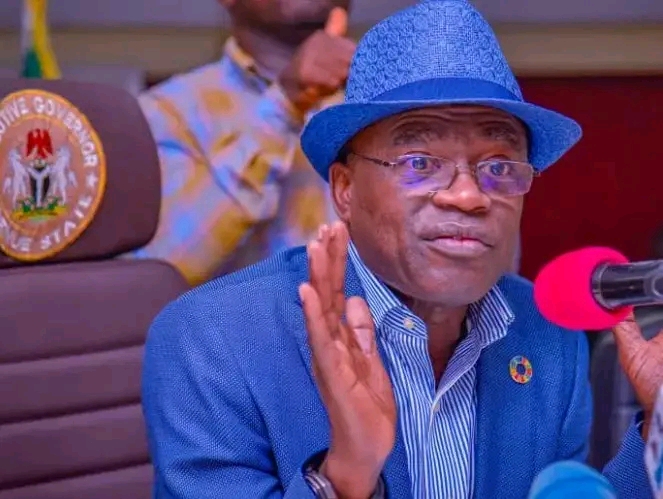Benue State Governor, Rev. Fr. Hyacinth Alia, has attributed the ongoing insecurity in the state to the 1999 adoption of the ECOWAS protocol on cross-border grazing, originally proposed in 1975. According to the governor, the protocol, which allowed pastoralists to migrate freely across West African borders, has inadvertently fueled land disputes and violence in Benue.
From the Pulpit to Politics
Reflecting on his transition from priesthood to politics, Gov. Alia, who has served as a Catholic priest for 35 years, said his grassroots experience made the shift seamless.
“As priests, we solve real-life problems daily. That background made it easier to take on governance,” he said.
He added that his philosophy of subsidiarity — empowering people to solve their own problems — has guided his leadership, though resistance to change remains a challenge.
IDPs in 17 LGAs, Benue’s Grim Reality
Speaking on insecurity, Alia stated that 17 of Benue’s 23 local governments host internally displaced persons (IDPs). The violence, he explained, escalated after Nigeria formally adopted the ECOWAS transhumance protocol in 1999.
“Previously, herders came and left seasonally without conflict. But the 1999 implementation changed everything. Armed mercenaries now displace communities in what seems like a coordinated land-grab strategy.”
He cited population growth, climate change, and porous borders—especially in Kwande LGA, which borders Cameroon—as factors that have worsened the crisis.
Through collaboration with the UN’s International Organization for Migration (IOM), Alia’s administration collected credible IDP data. As of mid-2024, over 500,000 people were displaced.
Benue, once the food basket of the nation, has suffered severe agricultural losses due to these conflicts.
A 3-Point Plan for IDPs
The governor outlined his administration’s three-pronged approach assimilation of displaced persons back into communities, relocation via 14 state-run IDP camps, resettlement to ancestral lands once security permits.
“Solving this is like treating a deep wound it needs consistent effort and multiple interventions,” he said.
He urged the Federal Government to reconsider Nigeria’s commitment to the ECOWAS grazing protocol to curb cross-border insecurity.
“Mr. 25”: Sustaining Timely Salary Payments
Nicknamed “Mr. 25” for consistently paying salaries by the 25th of each month, Alia said the real date now falls between the 22nd and 23rd to allow better financial planning for workers.
“When I came into office, Benue was N359 billion in debt. But we discovered that funds from the federal government weren’t reaching the people because of leakages between Abuja and Makurdi.”
He credited this success to prudent financial management, a practice he brought from his experience managing church resources.
Despite criticism from some elites who benefited from the old system, Alia remains committed to financial discipline and transparency.
Judicial and Political Friction
On his relationship with the judiciary, Alia clarified that issues around the Chief Judge were referred to the National Judicial Council (NJC), following due process. He emphasized his administration’s respect for judicial independence and autonomy for local governments.
Politically, the governor acknowledged internal resistance from entrenched interests:
“Corruption fights back. Those who benefited from mismanagement now resist reforms. But I’m here to serve the majority and not a select few.”
Alia concluded by reaffirming his vision of a renewed Benue State built on accountability, planning, and people-focused governance

